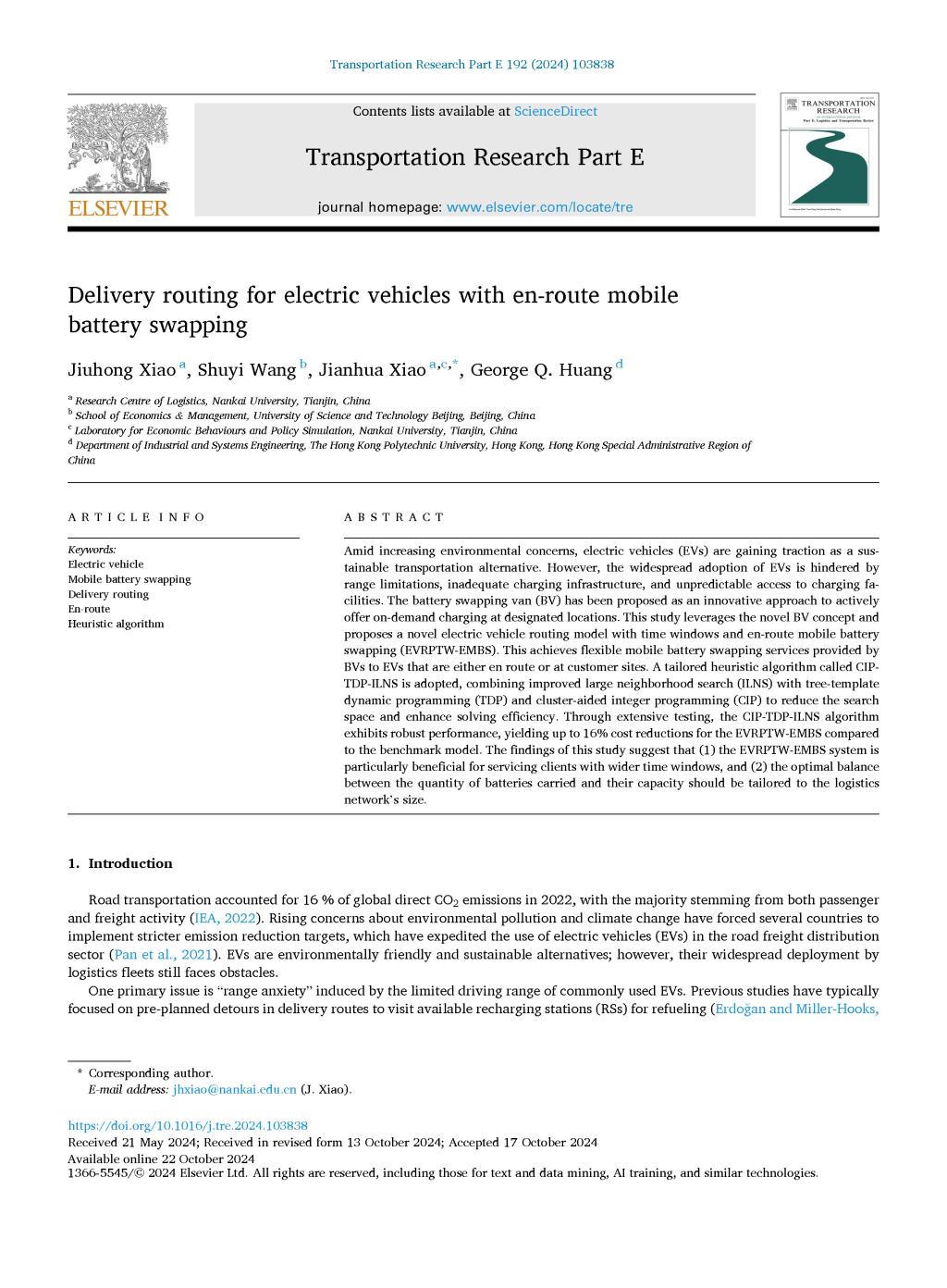By:Jiuhong Xiao a, Shuyi Wang b, Jianhua Xiao a,c,*, George Qd. Huang. Delivery routing for electric vehicles with en-route mobilebattery swapping. Transportation Research Part E, October 2024
ABSTRACT- Amid increasing environmental concerns, electric vehicles (EVs) are gaining traction as a sustainable transportation alternative. However, the widespread adoption of EVs is hindered byrange limitations, inadequate charging infrastructure, and unpredictable access to charging facilities. The battery swapping van (BV) has been proposed as an innovative approach to activelyoffer on-demand charging at designated locations. This study leverages the novel BV concept andproposes a novel electric vehicle routing model with time windows and en-route mobile batteryswapping (EVRPTW-EMBS). This achieves flexible mobile battery swapping services provided byBVs to EVs that are either en route or at customer sites. A tailored heuristic algorithm called CIPTDP-ILNS is adopted, combining improved large neighborhood search (ILNS) with tree-templatedynamic programming (TDP) and cluster-aided integer programming (CIP) to reduce the searchspace and enhance solving efficiency. Through extensive testing, the CIP-TDP-ILNS algorithmexhibits robust performance, yielding up to 16% cost reductions for the EVRPTW-EMBS comparedto the benchmark model. The findings of this study suggest that (1) the EVRPTW-EMBS system isparticularly beneficial for servicing clients with wider time windows, and (2) the optimal balancebetween the quantity of batteries carried and their capacity should be tailored to the logisticsnetwork’s size.

